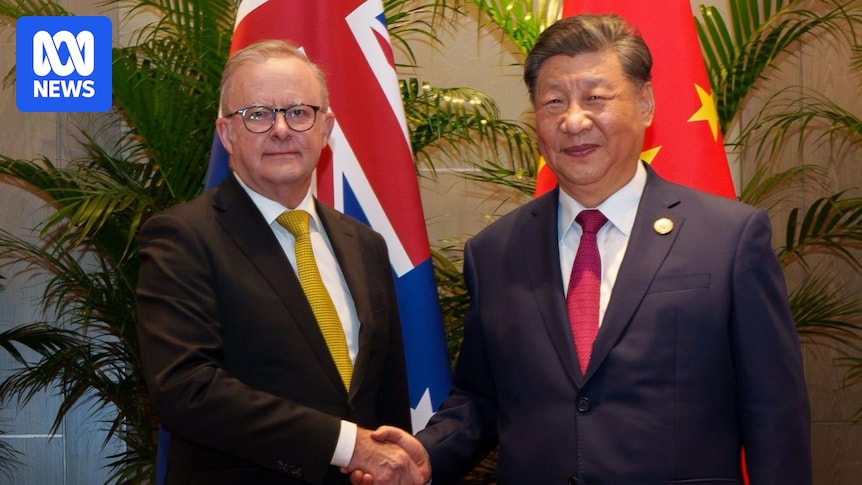
Prime Minister Anthony Albanese is set to embark on a pivotal six-day visit to China, departing tomorrow to engage with leaders in Beijing, Shanghai, and Chengdu. This diplomatic mission occurs at a crucial juncture, with Australia’s strategic balancing act between the United States’ unpredictable “America First” policies under Donald Trump and its indispensable yet challenging relationship with China.
During his trip, Mr. Albanese will engage in annual leaders’ talks with China’s Premier Li Qiang and meet with President Xi Jinping. The visit aims to address pressing economic and security issues, as Australia grapples with the dual challenge of maintaining robust trade ties with China while navigating the geopolitical complexities posed by the U.S. administration.
Economic Opportunities and Challenges
Central to Mr. Albanese’s agenda is the pursuit of economic opportunities, with a particular focus on job creation. China remains Australia’s largest export market, with the bilateral economic relationship thriving in recent times. The easing of trade barriers by Beijing has further bolstered this dynamic, exemplified by record Australian beef exports to China in April.
Accompanying the Prime Minister will be a delegation of business leaders from sectors such as finance, resources, agriculture, and education, eager to capitalize on China’s expanding middle class. Despite efforts to diversify trade partnerships, the sheer scale of the Chinese market remains unmatched.
However, there are inherent limitations. While Australia embraces the rhetoric of “stabilisation” and cooperation, China expects political concessions in return for economic engagement. This was evident when China’s Ambassador to Australia suggested expanding the free-trade agreement to include contentious areas like artificial intelligence, a proposal met with caution by Mr. Albanese.
Richard McGregor of the Lowy Institute remarked, “China’s not a trusted security partner for Australia, so engaging too much with Australia is really out of bounds.”
Strategic Concerns and Security Issues
Beyond economic discussions, Mr. Albanese’s visit will also address sensitive security matters. The Australian government has been wary of Chinese investments in strategic sectors, such as rare earths and infrastructure. A notable example is the Port of Darwin, which the government plans to return to Australian ownership, a move that has drawn criticism from China.
China’s military activities in the Pacific, including the circumnavigation of Australia by the People’s Liberation Army Navy, have heightened Canberra’s security concerns. The Australian government remains vigilant against potential threats to its critical infrastructure and is deeply concerned about the detention of Australian writer Yang Hengjun in China.
Climate Cooperation and Global Challenges
Despite these tensions, Australia recognizes China’s pivotal role in addressing global challenges. Foreign Minister Penny Wong emphasized China’s significance in tackling issues such as climate change and international trade during a recent ASEAN meeting.
Climate change is a priority for Australia, and the government anticipates collaborative announcements with China on green energy during Mr. Albanese’s visit. China, as the world’s largest emitter, has also invested heavily in renewable energy production.
Caroline Wang from Clean Energy Finance noted, “China leads the world by a ‘staggering margin’ in many aspects of the energy transition.”
The U.S. Factor and Future Implications
Amidst these developments, the specter of Donald Trump’s tariff agenda looms large. Australia’s strategic alignment with the U.S. is crucial to counterbalance China’s influence in the region. However, the Trump administration’s use of tariffs as leverage poses challenges for Australia, which seeks to avoid being caught in the crossfire of U.S.-China tensions.
Richard McGregor warned, “We’ve certainly experienced intense Chinese economic coercion. But we’re now about to get that from the United States.”
As Mr. Albanese navigates this complex diplomatic landscape, he must tread carefully to maintain Australia’s interests without alienating key partners. The outcomes of this visit could have lasting implications for Australia’s foreign policy and economic strategies in the region.







